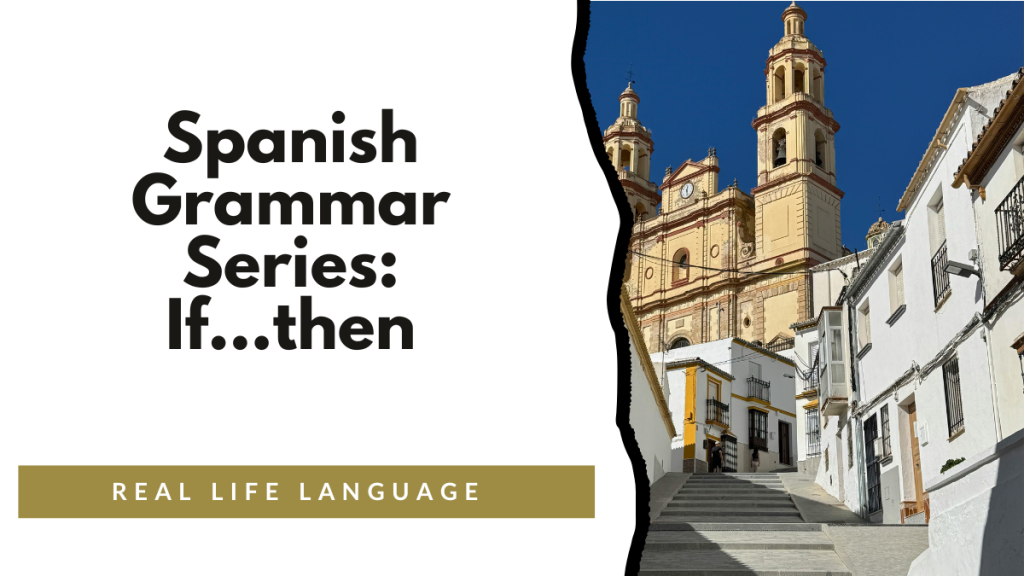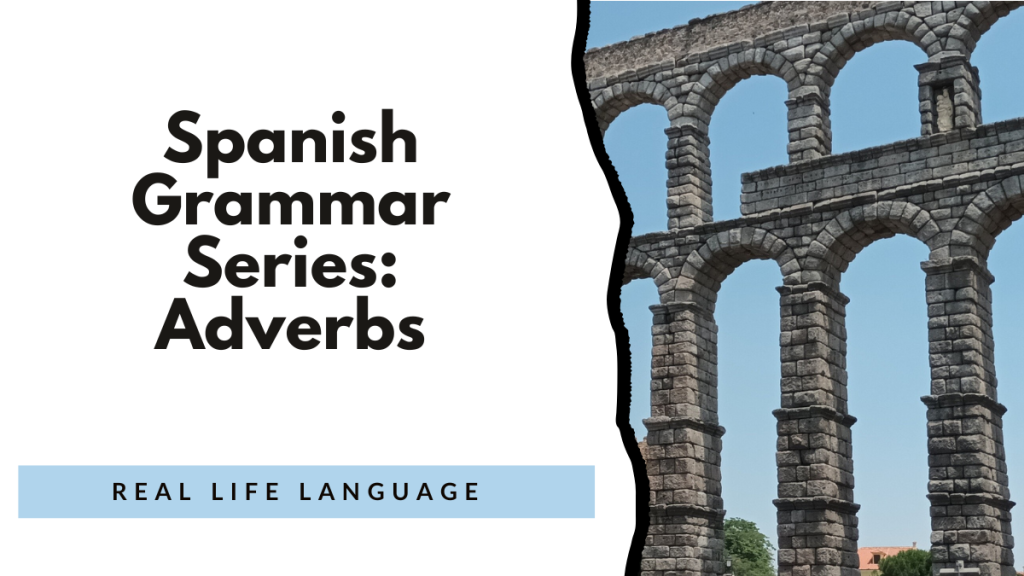(Also called “El Pretérito Imperfecto del Subjuntivo”)
The imperfect subjunctive is used to talk about hypothetical, uncertain, or emotional actions in the past — or to express “if” situations that are not real.
It’s the past form of the subjunctive mood, used when the main clause is in the past or the situation is contrary to reality.
1) Review: What Is the Subjunctive?
The subjunctive mood expresses wishes, emotions, doubts, recommendations, and uncertainty, not facts.
| Mood | Example | Meaning |
| Indicative | Sé que él viene. | I know he’s coming. (certain) |
| Subjunctive | Dudo que él venga. | I doubt he’s coming. (uncertain) |
| Imperfect Subjunctive | Dudaba que él viniera. | I doubted he was coming. (uncertain in the past) |
The imperfect subjunctive simply moves the same subjunctive meaning into the past time frame.
2) When to Use the Imperfect Subjunctive
Use the imperfect subjunctive when the verb in the main clause is in the past tense (preterite, imperfect, conditional, or pluperfect), and you need the subjunctive in the dependent clause.
Formula:
Main clause (past tense) + que + dependent clause (imperfect subjunctive)
Examples:
- Quería que tú vinieras. → I wanted you to come.
- Esperábamos que ellos llegaran temprano. → We were hoping they’d arrive early.
- Dudaba que ella tuviera dinero. → I doubted she had money.
- Fue triste que no pudieras venir. → It was sad that you couldn’t come.
3) How to Form the Imperfect Subjunctive
The formation is different from other tenses — but follows a clear pattern:
Steps to Form:
1️Take the ellos/ellas/ustedes form of the preterite tense.
2️Remove the -ron ending.
3️Add the imperfect subjunctive endings.
Endings (Same for -AR, -ER, and -IR verbs)
| Person | Ending |
| yo | -ra |
| tú | -ras |
| él/ella/Ud. | -ra |
| nosotros | -ramos |
| vosotros | -rais |
| ellos/ellas/Uds. | -ran |
(There’s also a less common “-se” set of endings: -se, -ses, -se, -semos, -seis, -sen — used mostly in literature or Spain.)
4) Regular Verb Conjugations
-AR Example: hablar
Preterite “ellos” form: hablaron → habl-
| Subject | Form |
| yo | hablara |
| tú | hablaras |
| él/ella/Ud. | hablara |
| nosotros | habláramos |
| vosotros | hablarais |
| ellos/ellas/Uds. | hablaran |
Yo quería que tú hablaras conmigo. → I wanted you to talk with me.
-ER Example: comer
Preterite “ellos” form: comieron → comi-
| Subject | Form |
| yo | comiera |
| tú | comieras |
| él/ella/Ud. | comiera |
| nosotros | comiéramos |
| vosotros | comierais |
| ellos/ellas/Uds. | comieran |
Era bueno que comiéramos juntos. → It was good that we ate together.
-IR Example: vivir
Preterite “ellos” form: vivieron → vivi-
| Subject | Form |
| yo | viviera |
| tú | vivieras |
| él/ella/Ud. | viviera |
| nosotros | viviéramos |
| vosotros | vivierais |
| ellos/ellas/Uds. | vivieran |
Dudaba que ellos vivieran cerca. → I doubted they lived nearby.
5) Irregular Stems
Irregular verbs in the preterite keep their irregular stems in the imperfect subjunctive — you just remove “-ron” and add the endings.
| Infinitive | Preterite “ellos” | Stem | Example |
| decir | dijeron | dij- | dijera, dijeras, dijéramos |
| estar | estuvieron | estuv- | estuviera, estuviéramos |
| tener | tuvieron | tuvier- | tuviera, tuviéramos |
| hacer | hicieron | hic- | hiciera, hiciéramos |
| poder | pudieron | pudier- | pudiera, pudiéramos |
| poner | pusieron | pusier- | pusiera, pusiéramos |
| querer | quisieron | quisier- | quisiera, quisiéramos |
| saber | supieron | supier- | supiera, supiéramos |
| venir | vinieron | vinier- | viniera, viniéramos |
| traer | trajeron | traj- | trajera, trajéramos |
| dar | dieron | die- | diera, diéramos |
| ir / ser | fueron | fuer- | fuera, fuéramos |
| haber | hubieron | hubier- | hubiera, hubiéramos |
Examples:
- Quería que hicieras la tarea. → I wanted you to do the homework.
- Era necesario que estuviéramos allí. → It was necessary for us to be there.
- No creían que él viniera. → They didn’t think he came.
6) Uses of the Imperfect Subjunctive
A. To express past wishes, emotions, doubts, or recommendations
| Trigger Verb | Example | Translation |
| querer | Quería que tú vinieras. | I wanted you to come. |
| esperar | Esperaba que ellos llegaran. | I was hoping they’d arrive. |
| dudar | Dudaba que él tuviera dinero. | I doubted he had money. |
| recomendar | Nos recomendaron que fuéramos al médico. | They recommended that we go to the doctor. |
B. After “si” (if) clauses for hypotheticals
Structure:
Si + imperfect subjunctive → conditional
Examples:
- Si tuviera dinero, viajaría por el mundo. → If I had money, I would travel the world.
- Si pudiera, te ayudaría. → If I could, I would help you.
- Si supieras la verdad, no dirías eso. → If you knew the truth, you wouldn’t say that.
The imperfect subjunctive expresses the unreal condition, and the conditional expresses the imagined result.
C. After past expressions of emotion, doubt, influence, or necessity
Examples:
- Fue una lástima que no pudieras venir. → It was a shame you couldn’t come.
- Tenía miedo de que se perdieran. → I was afraid they might get lost.
- Era importante que estudiáramos. → It was important that we studied.
D. To express politeness or soft requests (especially with “querer,” “poder,” “deber”)
Examples:
- Quisiera una mesa para dos, por favor. → I would like a table for two, please.
- Pudiera hablar con el director? → Could I speak with the principal?
- Debieras estudiar más. → You ought to study more.
This use overlaps with the conditional for polite or hypothetical tone.
7) Accent Reminder: Nosotros Form
All nosotros forms in the imperfect subjunctive carry an accent mark on the vowel before the -ramos ending:
- habláramos
- comiéramos
- viviéramos
- tuviéramos
- dijéramos
Esperábamos que llegáramos a tiempo. → We were hoping we’d arrive on time.
8) Practice: Fill in the Blanks
Conjugate the verbs in parentheses in the imperfect subjunctive.
- Quería que tú __________ (venir) conmigo.
- No creían que nosotros __________ (tener) razón.
- Era importante que ella __________ (estudiar).
- Si yo __________ (poder), iría contigo.
- Esperábamos que ustedes __________ (llegar) temprano.
- Fue una lástima que no __________ (haber) más tiempo.
Answers:
- vinieras
- tuviéramos
- estudiara
- pudiera
- llegaran
- hubiera
9) Practice: Translate
- I wanted you to do it.
- We hoped they would arrive early.
- If I were rich, I would buy a house.
- It was necessary that you studied.
- I didn’t think they came.
Answers:
- Quería que lo hicieras.
- Esperábamos que llegaran temprano.
- Si fuera rico, compraría una casa.
- Era necesario que estudiaras.
- No creía que vinieran.
10) Common Pitfalls & Fixes
| Wrong | Correct | Why |
| Quería que tú vienes. | Quería que tú vinieras. | Past trigger → imperfect subjunctive. |
| Si tengo dinero, viajaría. | Si tuviera dinero, viajaría. | Hypothetical → imperfect subjunctive. |
| Espero que fuiste. | Esperaba que fueras. | Past hope → imperfect subjunctive. |
| Si sería rico, compraría un coche. | Si fuera rico, compraría un coche. | “If” clause always subjunctive, not conditional. |
11) Quick Summary Chart
| Concept | Formula / Use | Example |
| Formation | Ellos preterite – “ron” + ra endings | hablaron → hablara |
| Endings | -ra, -ras, -ra, -ramos, -rais, -ran | comiera, viviéramos |
| Main clause in past | + que + imperfect subjunctive | Quería que vinieras. |
| Hypothetical si clause | Si + imperfect subjunctive → conditional | Si tuviera dinero, viajaría. |
| Politeness | with querer, poder, deber | Quisiera un café. |
| Nosotros form | accent before “-ramos” | estuviéramos |
Why the Imperfect Subjunctive Matters
The imperfect subjunctive:
- Allows you to express past uncertainty, emotion, or desire
- Enables you to use “if” clauses and hypothetical speech naturally
- Connects directly with the conditional tense
- Appears frequently in stories, news, and polite requests
It’s a key structure for advanced communication — turning simple ideas into sophisticated, realistic Spanish.
Here are some of my favorite resources to engage and inspire learners, to include my lifelong language learning journey.
Building Proficiency for World Language Learners: 100+ High-Interest Activities
Discover over 100 dynamic activities to make world language learning interactive and fun. I wrote this book with some of my favorite activities for educators aiming to build proficiency with high-impact strategies.
Learn more and get your copy here.
5 Weeks of No and Low Prep Fun
Need quick, engaging activities for your class? This free guide includes 25 no-prep and low-prep ideas to save time while keeping students excited about learning.
Download your free copy now.
100s of videos to learn Spanish:

